We are a diverse group of scientists, producers, and public and private sector professionals dedicated to finding sustainable agricultural solutions.
Grassland 2.0 is a collaborative group of scientists, educators, farmers, agencies, policymakers, processors, retailers, and consumers working to develop pathways for increased farmer profitability, yield stability and nutrient and water efficiency, while improving water quality, soil health, biodiversity, and climate resilience through grassland-based agriculture.
Meet our team
Grassland 2.0 is more than a team, it’s a movement, and hundreds of people across the state and beyond have engaged with the project. Outlined below are our project leaders and their areas of expertise.
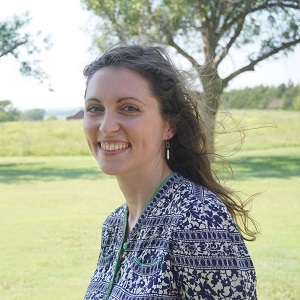
Aubrey Streit Krug
Learning Hubs
Aubrey is a writer and teacher who studies stories of relationships between humans and plants. She directs the Ecosphere Studies program at The Land Institute in Salina, Kansas, where she lives with her husband and son. She grew up in a small town in Kansas, where her parents farm wheat and raise cattle, and she loves limestone soils and rocky prairie hillsides. Streit Krug holds a PhD in English and Great Plains Studies from the University of Nebraska-Lincoln and is a co-author of the collaborative textbook The Omaha Language and the Omaha Way.
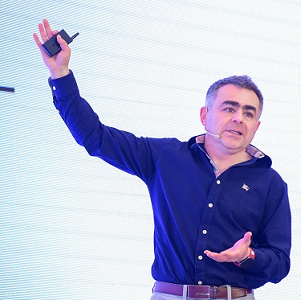
Victor Cabrera
Grassland Modeling
Victor Cabrera is a professor and extension specialist in dairy management at the University of Wisconsin-Madison Dairy Science Department. He combines applied research, interdisciplinary approaches, and participatory methods to deliver practical, user-friendly, and scholarly decision support tools for dairy farm management. These scientific tools are aimed to improve dairy farm profitability, environmental stewardship, and long-term sustainability of the dairy farm industry. During his career, Dr. Cabrera has developed more than 40 decision support tools, published >70 refereed articles, and 9 book chapters, presented in more than 100 scientific sessions, and given talks in more than 400 extension meetings in Wisconsin, other States, and several other countries.
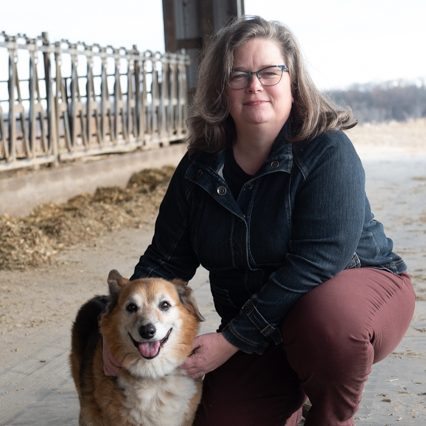
Sarah Lloyd
Grass-fed Supply Chains
Sarah farms with her husband Nels Nelson and his family on the 400-cow Nelson dairy farm in Columbia County, WI. She works off-farm as a Food Systems Scientist for the UW-Madison Center for Integrated Agricultural Systems and a Supply Chain Specialist for the University of Minnesota Forever Green Initiative, working on the Grassland 2.0 Project. She also works with the Wisconsin Food Hub Cooperative, the farmer-led cooperative founded in 2012 focusing on fresh local and regional produce, owned by the farmers and the Wisconsin Farmers Union. Sarah has a PhD in Rural Sociology from UW-Madison and a Masters in Rural Development from the Swedish University of Agricultural Sciences. Sarah is active in the Wisconsin Farmers Union, serving on the state Board and in her local county chapter. She is also the President of the Board of the Wormfarm Institute.
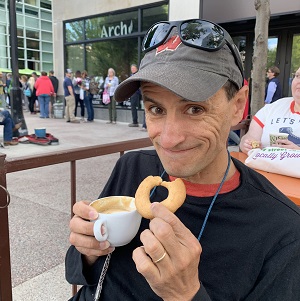
Claudio Gratton
Grassland Modeling
Claudio has been on the faculty in the Entomology department at the University of Wisconsin-Madison since 2003. His research group works broadly on the landscape ecology of arthropods in managed and natural environments. His group has been involved in research understanding landscapes and management interact to affect the conservation of beneficial insects in agricultural landscapes. They have examined the role of unmanaged “non-crop” lands in the agricultural matrix and their effects on the abundance and diversity of beneficial insects such as predators and pollinators. His group’s work on insect conservation has partnered them with Wisconsin potato, soybean, cranberry, apple, and vegetable growers as well as rotational graziers. In addition, Claudio’s group has partnered with state, federal, and non-governmental conservation organizations on research and initiatives aimed at pollinator conservation in agricultural landscapes.
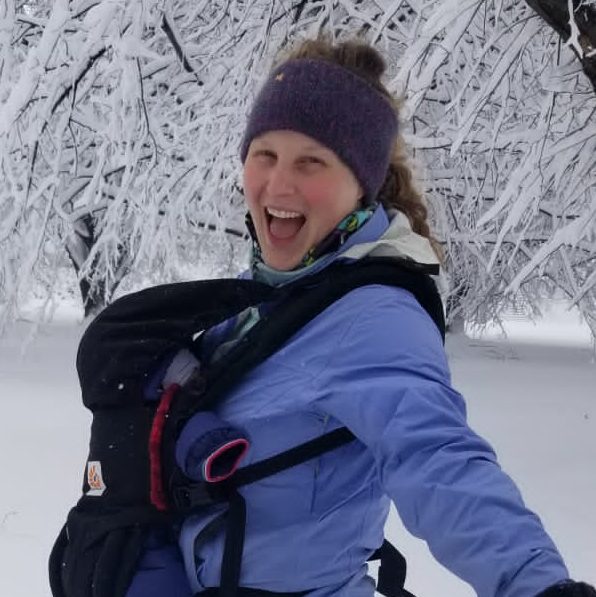
Courtney Bolinson
Developmental Evaluation
Courtney is an evaluation consultant specializing in developmental evaluation and systems change. She uses tools from systems thinking, program evaluation, facilitation, visioning, and conflict resolution to help people and organizations clarify their goals, evolve their thinking, and transform systems. Her role with Grassland 2.0 is to hold a mirror to the project and facilitate discussion about what is being learned and how the project should adapt accordingly. Her background as an agroecologist with an interest in grazing is a bonus for the project.
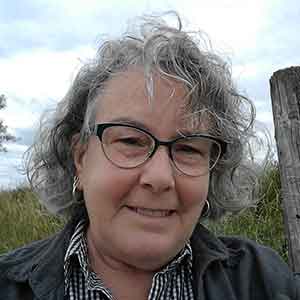
Laura Paine
Grassland Farming and Outreach
Laura is outreach coordinator for Grassland 2.0. She has been involved in regenerative agriculture education and research in the Upper Midwest for more than 25 years. Her work experience includes research, education and market development work for grass-fed and organic farmers with the University of Wisconsin-Madison, UW Extension, and the Wisconsin Department of Agriculture, Trade and Consumer Protection, and service as program director for Dairy Grazing Apprenticeship (DGA). Laura is an NRCS Technical Service Provider and a Certified Crop Advisor. Laura and her husband recently retired from raising grass-fed beef on their 82-acre farm near Columbus, WI.
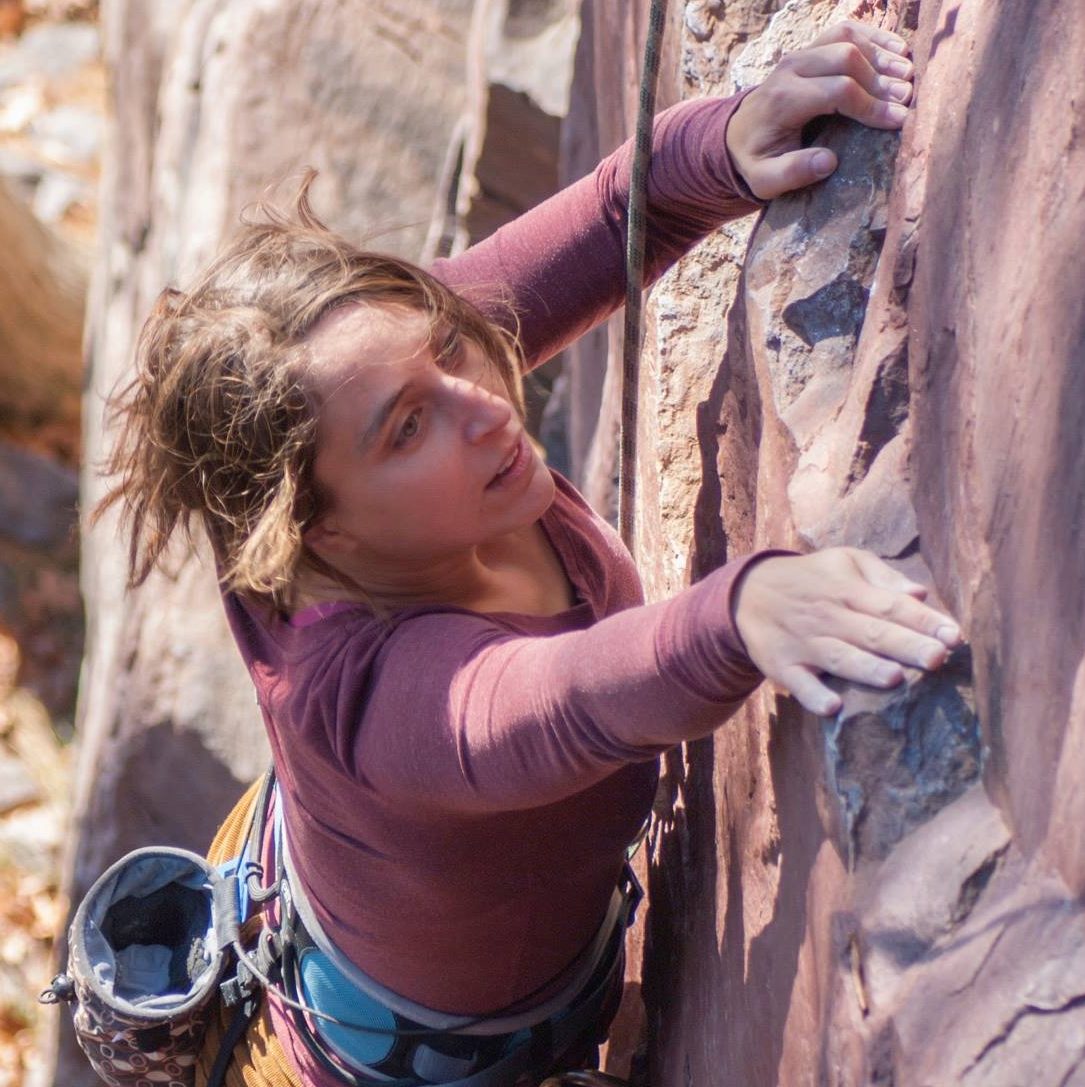
Elissa Chasen
Grassland Modeling
As a scientist in the Department of Entomology, Elissa joined the Grassland 2.0 modeling team to develop predictive models that illustrate ecological outcomes of agricultural management across landscapes. Elissa combines large ecological datasets, machine learning algorithms, and systematic literature review of agricultural practices on biophysical processes to help inform these models. Her background is in data science, agricultural entomology and ecology, designing and researching integrated pest management plans that reduce insect pest abundance through an ecological and economic framework. She obtained her BS in Conservation Biology from UW-Madison (2005), MS in Ecology from UM-Ann Arbor (2009), and PhD in Entomology from UW-Madison (2014).
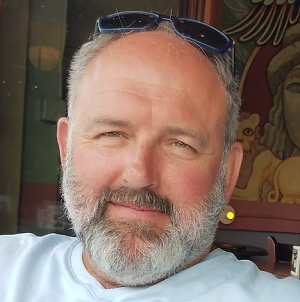
Randy Jackson
Grassland Ecology
Randy is a professor of Grassland Ecology in the Department of Agronomy at UW-Madison. Most of our agriculture happens in the grassland biome, which has provided for our caloric needs, but undermined our drinking water, climate, and biodiversity. Most of the research in Randy’s lab seeks to understand how the management of agroecosystems influences their productivity, carbon storage, nutrient retention, and habitat.
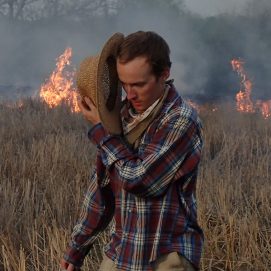
Jacob Grace
Communications
Jacob Grace supports managed grazing and perennial agriculture through his work with UW-Madison’s Center for Integrated Agricultural Systems (CIAS) and the nonprofit Savanna Institute. Jacob joined the CIAS staff in 2018 after receiving M.S. degrees in Agroecology and Life Sciences Communication from UW-Madison, where he conducted research on the use of rotational grazing as a management tool on public grasslands in Wisconsin.
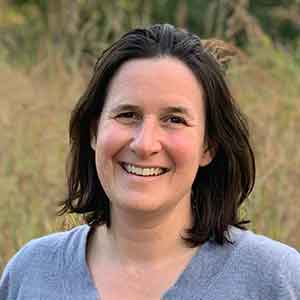
Adena Rissman
Grassland Policy and Governance
Adena is a Vilas Distinguished Achievement Professor in the Department of Forest and Wildlife Ecology at the University of Wisconsin-Madison. She leads the PIE lab: People, Institutions and Ecosystems. Her interdisciplinary research examines society, policy, and natural resources including the ownership and governance of natural and agricultural lands. Adena collaborates with social and ecological scientists, practitioners, and stakeholders on projects funded by the US Department of Agriculture and National Science Foundation. She received her PhD from the University of California at Berkeley on research about grazed oak woodland conservation and management.
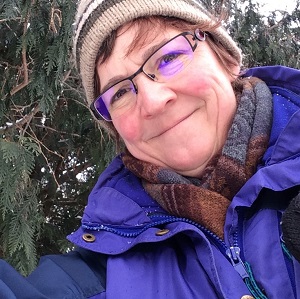
Erin Meier
Learning Hubs
Erin is the Director of Green Lands Blue Waters (GLBW), a collaborative initiative focused on shifting the agricultural landscape of the Upper Mississippi River Basin to more acres of marketable continuous living cover (CLC) to improve water quality, soil health, agricultural and community resilience, and the long-term stability of the Basin to the Gulf of Mexico. GLBW is housed at the Minnesota Institute for Sustainable Agriculture at the University of Minnesota. Erin has over 20 years of experience and training in sustainable agriculture, local food systems, food access, natural resource conservation, clean energy, community engagement and development, and facilitating cross-sector work groups and networks. Erin holds an MS in Sustainable Agriculture from Iowa State University and is a geographer at heart with a BS in Geography from the University of Illinois and past experience as a cartographer and GIS analyst.
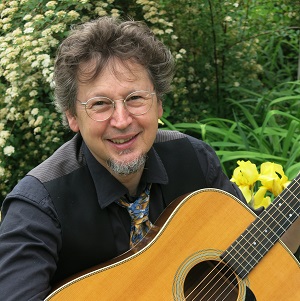
Michael Bell
Grassland Education
Mike is a professor of Community and Environmental Sociology at UW-Madison. Mike’s research and teaching focuses on a wide range of topics, including issues of agroecology, community, culture, development, economy, environment, gender, participation, place, and social justice, with an eye toward both the practical and theoretical issues of how we might do a better job with all of these matters.

Eric Booth
Grassland Modeling
Eric is an Associate Scientist and Lecturer at the University of Wisconsin-Madison in the Departments of Agronomy and Civil & Environmental Engineering as well as the Nelson Institute for Environmental Studies. Generally, he studies the interactions between water, land, climate, and humans primarily using biophysical computer models and field monitoring. He works at multiple scales: from a continental look at impacts of corn ethanol production to a stream-reach investigation of different restoration techniques. He also works across multiple disciplines including hydrology, ecology, geology, agronomy, history, and social science. His research involves a strong public outreach component not only to communicate relevant findings but to better understand local knowledge, experiences, and perspectives related to water and land. He holds a BS in Environmental Engineering from UW-Madison (2004), MS in Hydrologic Science from UC-Davis (2006), and PhD in Limnology from UW-Madison (2011).
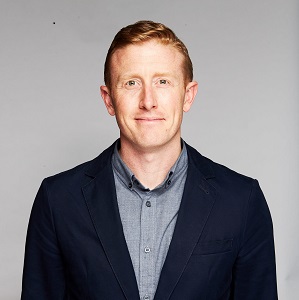
Pete Huff
Grassland Modeling and Learning Hubs
Pete is an Associate Director at the Wallace Center where he oversees the Resilient Agriculture & Ecosystems Initiative and the Pasture Project. His background is in regenerative agriculture and food system program design and implementation in the U.S. and Australia. Pete began his work in agriculture through permaculture and keyline design, believing in the potential for working lands to support climate change mitigation and adaptation. This has evolved to include the economic and social benefits regenerative agriculture offer farmers and rural communities. He holds degrees in Environmental Management and History from Indiana University and a Masters of Public Affairs from the University of Minnesota.

Nick Jordan
Grass-fed Supply Chains
Nick is a Professor of Agronomy & Plant Genetics, at the University of Minnesota. He is an agricultural ecologist, and a Resident Fellow of the University’s Institute on the Environment. He does collaborative research and public engagement to advance diversification in agriculture, using a wide range of research methods. He co-directs the Forever Green Initiative, a cross-sector collaborative network working to advance crops that provide continuous living cover for Midwest agriculture.
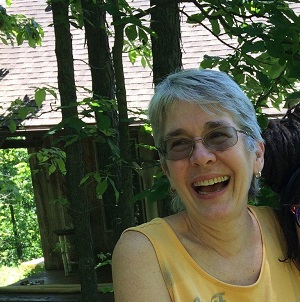
Margaret Krome
Grassland Policy and Governance
Margaret is Policy Program Director for the Michael Fields Agricultural Institute in East Troy, Wisconsin. She helps develop state and local programs and policies supporting environmentally sound, profitable, and socially responsible agriculture. Margaret also helps coordinate a farmer-led watershed group in southwest Wisconsin.
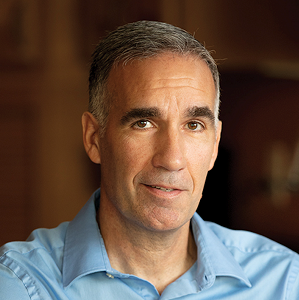
Chris Kucharik
Grassland Modeling
Chris is Professor and Chair in the Department of Agronomy at the University of Wisconsin-Madison. He is also affiliated with the Nelson Institute for Environmental Studies, the Department of Atmospheric and Oceanic Sciences, and the Wisconsin Energy Institute. He is a member of the Working Groups Council for the Wisconsin Initiative on Climate Change Impacts (WICCI), and serves as co-chair for the WICCI Agriculture Working Group. His interdisciplinary research program combines ecosystem modeling with field work on plant physiology, eco-hydrology, and biogeochemical cycling to better understand the impacts of land management decision-making and a changing climate on the food-energy-water nexus. More specifically, the overall mission of his research group is to find ways to enhance the resiliency of ecosystems – and the services they provide – to drivers of global change.
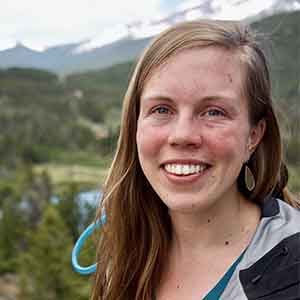
Greta Landis
Evaluation
Greta is an Evaluation Specialist at the Natural Resources Institute in the University of Wisconsin-Madison Division of Extension. She joins Grassland 2.0 after more than 10 years in agricultural systems as a farmhand, researcher, apprentice, and evaluator. Her graduate research explored cattle grazing for habitat management on public lands in Wisconsin. Her evaluation expertise includes environmental education programming, farm planning and decision-support, conservation monitoring, and interdisciplinary research.
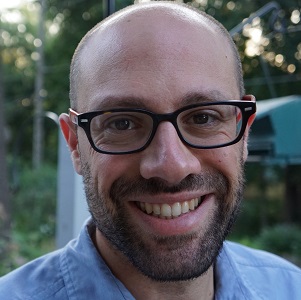
David LeZaks
Grassland Economics and Finance
David is an environmental scientist and financial activist whose work is centered on developing innovative mechanisms for financing the transition to agroecological farming and food systems. Currently, he is a Senior Fellow at the Croatan Institute. Previously, he led the Regenerative Food Systems initiative at Delta Institute in Chicago, where he managed a portfolio of projects that focused on the design and deployment of disruptive mechanisms to unlock substantial capital flows into regenerative agriculture. He serves in advisory roles to Mad Agriculture, the Savanna Institute, Nourishn, Council of Development Finance Agencies’ Food Systems Finance Advisory Council, and the Transformational Investing in Food Systems Initiative, an allied initiative of the Global Alliance for the Future of Food.
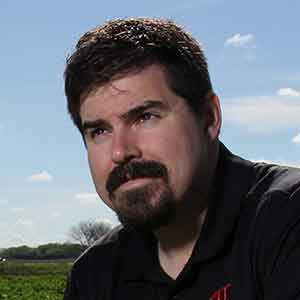
Matt Ruark
Grassland Modeling and Learning Hubs
Matt is a Professor in the Department of Soil Science at the University of Wisconsin-Madison and an Extension Specialist in UW-Madison’s Division of Extension. His Nutrient Cycling and Agroecosystems Laboratory works to improve knowledge of nitrogen, phosphorus, and carbon cycling in grain, dairy, and vegetable cropping systems. He also serves as Faculty Advisor to the UW-Discovery Farms program and the Wisconsin Agri-Business Association.
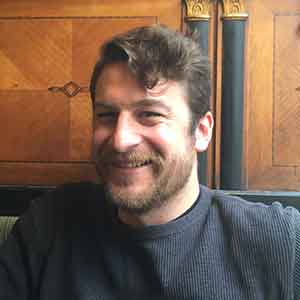
Carl Wepking
Project Coordination
Carl is an assistant scientist at the University of Wisconsin-Madison and the program manager for Grassland 2.0. His research has been primarily focused on soil and microbial ecology, soil biodiversity and the ecosystem services provided by the life in soil and researching how human activities effect soils and their associated functioning, both positively and negatively. Particularly, his research has focused on the unintended consequences of livestock antibiotics and affect these antibiotics can have on soil microbes and the functions they regulate. Carl received his BS in Environmental Science from St. Norbert College, his MS in Environmental Science from Washington State University and his PhD in Biology from Virginia Tech where he was also a fellow within the Interfaces of Global Change Interdisciplinary Graduate Education Program.
We also have a diverse team of meta-stakeholders who serve as project advisors and lend their knowledge, perspectives and expertise to the project as we continually evolve. Those meta-stakeholders include:
- Dick Cates, Cates Family Farm
- Martin Griffin, Madison Metropolitan Sewerage District
- Jordan Mathews, Rosy Lane Dairy
- Scott Mericka, Grass Dairy and Uplands Cheese
- Rod Ofte, Willow Creek Ranch and Wisconsin Meadows Beef Cooperative
- Bert Paris, Paris Farm
- Logan Peterman, Organic Valley Farm Cooperative
- Brian Pillsbury, previously of Wisconsin Natural Resources Conservation Service
- Marie Raboin, Dane County Land and Water Division
- Bryce and Jen Reimer, Reimer Farm
- Rachel Rushmann, Wisconsin Department of Agriculture, Trade and Consumer Protection
- Bob Wills, Cedar Grove Cheese and Clock Shadow Creamery
Our collaborators
In addition to our team and meta-stakeholders, we collaborate with diverse partners from across the state and beyond including:
Cedar Grove Cheese and Clock Shadow Creamery
Dane County Land and Water Division
Grass Dairy and Uplands Cheese
Natural Resources Conservation Service
Organic Valley Farmer Cooperative
Paris Farm
River Country Resource Conservation and Development Council, Inc.
University of Minnesota College of Food, Agricultural and Natural Resource Sciences
University of Minnesota Extension
University of Wisconsin-Madison Center for Integrated Agricultural Systems
University of Wisconsin-Madison College of Agricultural & Life Sciences
University of Wisconsin-Madison Division of Extension
US Dairy Forage Research Center
Wisconsin Department of Agriculture, Trade and Consumer Protection
Grassland 2.0 is funded through the USDA National Institute of Food and Agriculture Sustainable Agricultural Systems Coordinated Agricultural Program.
Get in Touch
Keep up to date as project activities progress and more information is available.